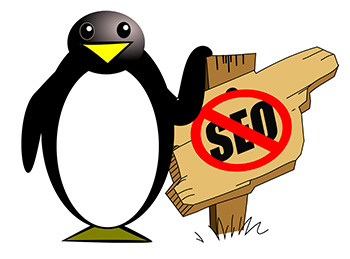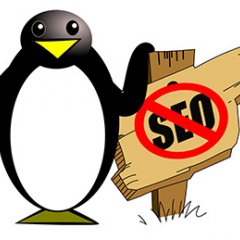Every now and then we’ll build a website for a customer and they’ll ask:
- “What is our website optimised for?”
- “Why are we not coming up for XXXXXX keyword.”
- “I looked at our competitors keywords and they have about 20 of them in their homepage, why aren't we doing that?”
These are all outstanding questions, but all 3 of those questions now come with complicated answers.
 What does SEO even mean?
What does SEO even mean?
SEO stands for Search Engine Optimisation. Basically you’re aiming to get as much traffic as possible for certain search terms that are relevant to your website. Not much has changed there... BUT... SEO used to be pretty straight forward. Pump some keywords into your pages and pat yourself on the back for a job well done.
Alas no more! Over the last few years SEO now takes many more factors into consideration while ranking your site. Traditional SEO elements like title tags, keywords, URL structure, image tags, internal link structure, and inbound links plus much more are still very important. But the mighty Google also look at site structure and design, visitor behaviour, and other external, off-site factors to determine how highly ranked your site should be in the search engine results pages.
We could stop there, but it’s probably better if we focus on what’s changed.
How as SEO changed over the last few years?
SEO is no longer about including as many keywords as possible into a page in the hope that you will rank for some of them. This can actually damage your rankings as Google considers this “Keyword Stuffing” and just doesn’t work.
If you're not using particular keywords naturally in your page, you should probably just leave those ones out.
SEO Link Building no-no’s
Having as many links as possible pointing back to your site used to guarantee you keyword rankings. Unfortunately, many people (and agencies) started to cheat the system and hire outsourced link builders to do this type of work. They would proceed to build tons of dodgy links to your site. Google is onto these tactics now and will kill all your traffic if you get caught doing so.
SEO is more about topics / useful content
Google’s core business is about delivering the best quality content to the searcher. They make billions of dollars per year doing this and people trust them to a certain degree for doing so.
Traditionally your number one goal when creating an article was to optimise it for a certain keyword. This is still fine… but whenever you create a new article its core should be delivering value to the reader. If you’re just creating an article with no substance that is optimised for a keyword you’d like to rank for, it more than likely isn’t going to get you anywhere.
Social factors in SEO
The way people share content now affects how you rank on search engines. SEO now takes into account tweets, retweets, Google+ authorship, and other social network activities.
Social search figures out that you might be interested in content that your network feels is important to share, which means it will often get presented to you.
User Experience is also important for SEO
Are you a Content Destination? Did searchers come for an article but then stick around to read what else you have to say? If so then great! You want users to stay on your site and interact with your content as much as possible.
SEO takes into account whether or not your visitors are staying on your website and engaging with other content (remember when you installed Google Anlaytics, they can access all that data). If you’re ranking well for a keyword and are attracting visitors that are not relevant, they won't actually help your website. Think about the visitors you are targeting and the content they are looking for more than how many people you can attract to your website. Quality not quantity! This approach takes patience, but works every time :-)
Top Google rankings don’t always mean you’re winning
The first three results on the first page of Google are often desired when trying to rank for keywords… But even if you do rank well does that mean your going to get better sales?
Not always! If you rank well for a term that isn’t related to your business and get loads of traffic but the visitors quickly realise that that's not what they are looking for, you will not make any money off this traffic.
Also, there is evidence to suggest that once a searcher starts looking beyond the first page of results, they become much higher quality leads as they are trying hard to find a solution to their problem.
Soooo what the heck is SEO??????
Basically it’s the same thing it was a decade ago – a whole lot of tactics that aim to get you better rankings. The tactics have changed because search engines are continually evolving so they can keep delivering the highest quality content to the searcher. If you keep that in mind with your online strategy you will more than likely build sustainable rankings even if you're not keeping your finger on the pulse of every little search engine algorithm update.

 Back to blog
Back to blog
